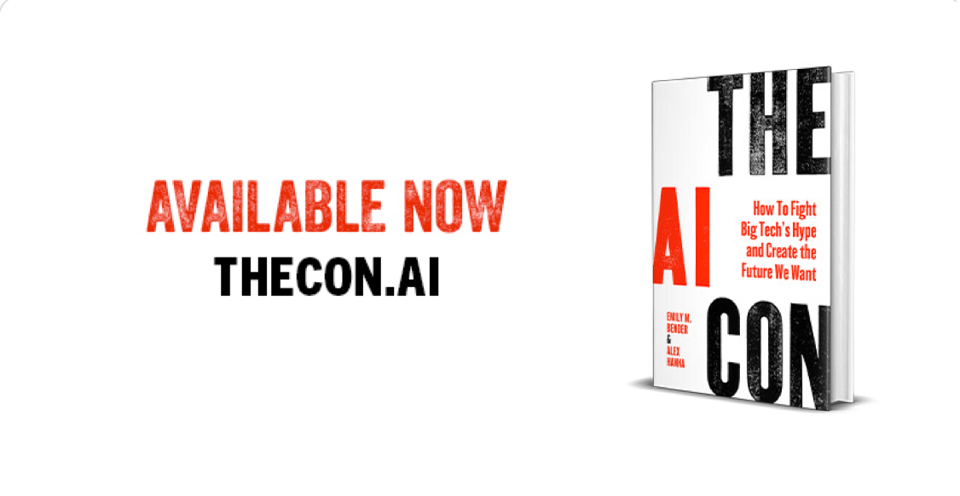More collegiate FOMO
AI Hype is Warping How Universities See Themselves
By Emily
It seems to be the season of universities announcing their AI initiatives, and it seems like everyone wants to be "the AI university", to teach "AI across the curriculum" and develop "an interdisciplinary approach to AI" (quotes approximate). Here at the University of Washington, our provost has appointed a task force, and the announcement has all the usual hype (such as "exploring the potential of artificial intelligence to improve lives around the world in nearly every field of study and area of research") and inevitabilism (like "Developing an institutional strategy for artificial intelligence is no longer a choice; it’s an imperative for the University"), and, of course, appoints our institution as the natural leader ("The UW has a responsibility to lead in the conversation around AI"). There's the obligatory nod to "ethics" ("lead in the conversation around AI – not only in potential applications but in their ethical and equitable use").
It's hard to fault colleagues for looking at sources of potential research funding and finding a way to desribe their research interests such that they can apply for that funding. At the same time, it's long been obvious that channeling funding for all types in inquiry through a single discipline distorts the conversations of science and scholarship by making that one discipline too powerful. And I'd wager that it's even worse when that one discipline conceives of itself as developing "general purpose solutions". In other words, CS and in particular machine learning have been over-funded for decades now. This is bad for CS research and researchers and it's bad for all the fields that are consequently starved of funding. And it's worse when it gets wrapped up in "AI" and all the hype about how "AI" is going to solve everything for us. (For more on that, join us for the next livestream of Mystery AI Hype Theater 3000 when we'll be talking with Molly Crockett and Lisa Messeri about AI hype in science. Monday April 15, 9am Pacific.)
What I'd love to see is a university that responds to the pressure and hype by saying something like this:
We're going to prepare for this AI future that everyone is talking about by committing to funding fundamental research across disciplines, but especially the humanities and social sciences. Of course, we're concerned about the ethical and equitable development and use of the technology, and that's why we need scholars who are innovating at the edges of our understanding of how humans experience life, how power works in society, how we can reshape our social and economic systems towards justice, equity and sustainability. And we recommit to our mission of training students to be critical thinkers across disciplines, who can critically consider sources of information and locate them within their context, who can evaluate toolkits for the tasks they are taking on and decide which tools fit which task, and who can see through the glib marketing that power cloaks itself in.
A statement like that would give me confidence that the university's leaders are keeping an eye on the big picture, rooted in an understanding of the mission of higher ed, rather than following the latest hype du jour.
